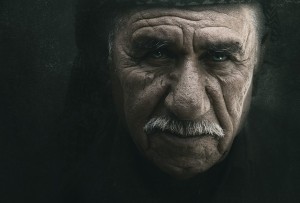 Twelve years ago, soon after my younger brother unexpectedly died, my father pressed me about my future burial plans. I felt clammy and tight and above all irritated: not even 40 then, I was too young to think about the details of my death. I refused to answer him and pushed the thoughts and uncomfortable feelings aside.
Twelve years ago, soon after my younger brother unexpectedly died, my father pressed me about my future burial plans. I felt clammy and tight and above all irritated: not even 40 then, I was too young to think about the details of my death. I refused to answer him and pushed the thoughts and uncomfortable feelings aside.
These days, I’m well over 40 and my parents have edged past 80, and I do let some practical concerns about aging and death–mine and theirs –drift through the hallways of my mind. In fact, this year I’ve had to face my parents’ aging square in the eye after my father was hospitalized and it became apparent my mother could not manage on her own.
My remaining brother and I sold the house, moved my mother into assisted care, and five months later got Dad into a nursing home. This turn of events was complicated by the geographic distance between them and us. We simply couldn’t do all that needed to be done from afar, and we relied heavily on friends, who kept watch on our vacant house, took Mom to see Dad, or helped my mother set up her new room.
Aging without social support
As hard as the last six months has been, my parents’ situation was less dire than that of “HB,” an elderly man whose long-term pain, delirium and lack of support led to a failed suicide attempt earlier this year. His case was highlighted in a paper on “elder orphans,” the increasing number of childless and unmarried seniors, presented this May at the American Geriatrics Society’s Annual Scientific Meeting.
In Canada, as in the U.S., the number of childless couples is growing. Janice Keefe, Director of the Nova Scotia Centre on Aging, believes the numbers will rise even more rapidly after 2021 when the first of the baby boomers turns 75. Keefe also points out that the growing mobility of workers means that boomers who do have children may not live close by them in their later years. “Aging baby boomers are going to need new ways to cope,” she says.
I’m taking those wise words to heart. I’m a far cry from 75, but I am a boomer, and it’s true, I’ve no ready stash of children by my side—or living in distant cities, for that matter. Uncomfortable as it is, I’ve had to think about what will happen if/when I can no longer walk, dress myself or remember to take my meds.
Plan A is to avoid getting there in the first place, warding off heart disease, arthritis and dementia by exercising daily, eating right, and meditating my stress away. And if my super-healthy habits don’t do the trick? I’ll implement Plan B, investing in a good set of friends, particularly ones who are younger than me, and have a good heart— both in the physical and emotional sense of the word.
Photo credit: Pixaboy. This picture has a creative commons attribution licence.

